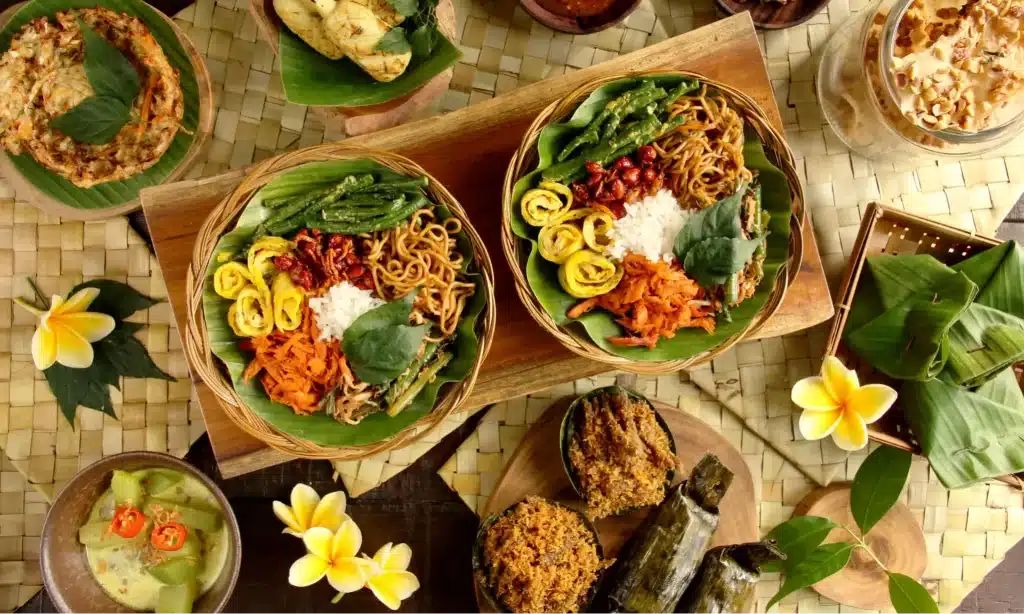In a groundbreaking move, the United Nations World Tourism Organization (UNWTO) has officially bestowed Ubud, Gianyar, Bali, with the prestigious title of a global prototype for gastronomic tourism. This recognition is more than a mere acknowledgment; it’s a testament to Ubud’s rich cultural heritage and its emergence as a culinary epicenter.
Understanding Gastronomic Tourism
Gastronomic tourism, often referred to as culinary tourism, goes beyond the conventional idea of enjoying local cuisine. It is a holistic journey that intertwines with local traditions, cultural nuances, and the essence of a community’s identity. It involves exploring not only the flavors of a region but also the stories behind the dishes, the history embedded in culinary practices, and the cultural significance of the ingredients used.
UNWTO’s Role in Gastronomic Tourism
The United Nations World Tourism Organization (UNWTO) plays a pivotal role in promoting responsible, sustainable, and universally accessible tourism. Specifically, in the realm of gastronomic tourism, UNWTO works to recognize and celebrate destinations that excel in offering unique culinary experiences. The designation of Ubud as a global gastronomic hub reflects UNWTO’s commitment to acknowledging the cultural and economic importance of gastronomy in tourism.

Ubud Tourism: A Cultural Tapestry Unveiled
Ubud, nestled in the Gianyar regency of Bali, is renowned for its vibrant arts scene, lush landscapes, and a cultural tapestry woven with unique traditions. Beyond its recent recognition for gastronomic tourism, Ubud has long been a cultural beacon, attracting travelers seeking a deep dive into the heart of Balinese heritage. According to recent tourism data, Ubud stands out as a cultural and artistic hub, drawing visitors with its traditional dance performances, art galleries, and craft markets. The town’s strategic location amidst rice paddies and steep ravines adds to its allure, providing a picturesque setting for those eager to explore Bali’s cultural roots.
Gastronomic Tourism and Bali’s Tourism Landscape
Traditionally, Bali’s tourism revenue has been dominated by cultural attractions, contributing 60% to the island’s income. Nature accounts for 35%, while artificial attractions make up the remaining 5%. The introduction of gastronomic tourism marks a significant shift, not just in the revenue distribution but in the way tourists experience and engage with Bali’s cultural offerings.
Gastronomic tourism is poised to play a pivotal role in Bali’s economic landscape, offering a unique avenue for local communities to showcase their culinary traditions. This includes not only the flavors of Balinese cuisine but also the stories embedded in each dish, providing a more immersive and enriching experience for visitors.
Ubud’s Gastronomic Present and Future
In the current gastronomic landscape of Ubud, there’s a palpable energy. Local restaurants, street vendors, and upscale eateries alike contribute to the diverse and flavorful tapestry of Balinese cuisine. From traditional breakfast options to delectable desserts, the gastronomic offerings in Ubud are a celebration of the region’s culinary heritage.
The meticulous process of establishing Ubud as a global gastronomic hub involves diagnosing challenges, developing gastronomy techniques, and formulating future implementation strategies. Initiatives like the Gastronomy Tourism Club, established in collaboration with UNWTO, underscore Ubud’s commitment to ongoing development and increasing its allure for tourists.
Conclusion
As Ubud takes center stage in the world of gastronomic tourism, it reaffirms its position as a cultural gem within Bali. UNWTO’s recognition is not only an honor for Ubud but also an opportunity for travelers worldwide to delve into the rich tapestry of Balinese cuisine, traditions, and artistic expressions.
Ubud’s journey from a cultural hub to a global gastronomic destination is a testament to the island’s commitment to preserving its heritage while embracing the evolving dynamics of tourism. As visitors embark on a culinary and cultural odyssey in Ubud, they are welcomed not just to taste the flavors of Bali but to immerse themselves in its stories, traditions, and the warm hospitality of its people. Ubud, now recognized by UNWTO, invites the world to savor the essence of Balinese culture through its diverse and delectable culinary offerings.
















Add a comment